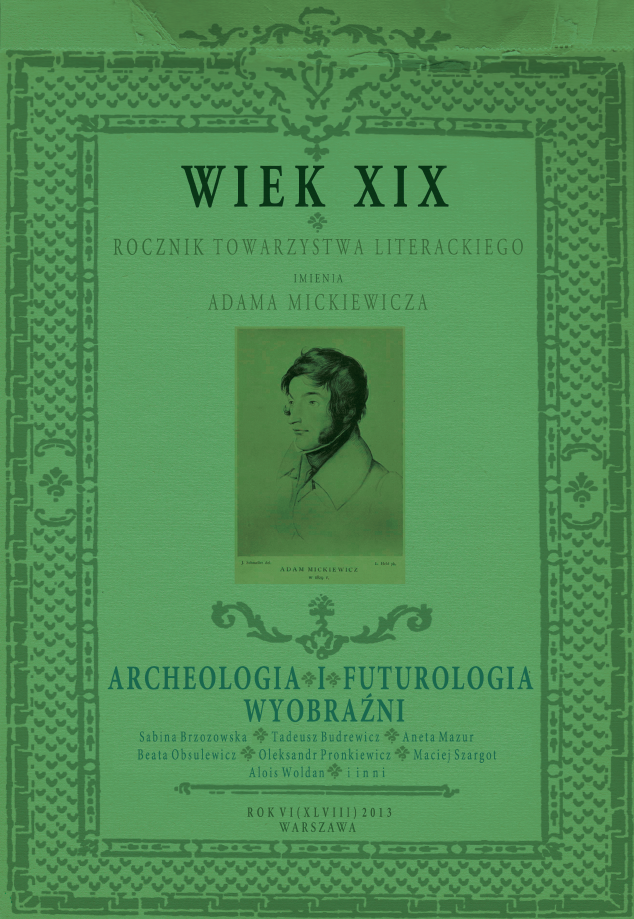Das Rusalka-Motiv bei Puškin, Ševčenko und Mickiewicz – ein komparatistischer Versuch
The Motif of Rusałka, the Slavic Mermaid in Pushkin, Shevchenko, and Mickiewicz – a Comparative Attempt
Author(s): Alois WoldanSubject(s): Studies of Literature, Comparative Study of Literature, Polish Literature
Published by: Towarzystwo Literackie im. Adama Mickiewicza
Keywords: Rusalka; Alexander Pushkin; Taras Shevchenko; Adam Mickiewicz
Summary/Abstract: This article examines the topos of Rusalka, the Slavic mermaid, in the works of leading Slavic Romantic poets, A.S. Pushkin, T.H. Shevchenko and A. Mickiewicz. Their interest in this topic was motivated first of all by the interest in Slavic folklore. This article gives an overview of all the different Rusalka-texts written by these authors, confronting them with folklore sources, and fixes on their translations into opera-librettos. Besides, the author is interested in common features of the literary treatment of this figure by the named poets, mainly, what concerns the social context of this figure, usually, a poor, beautiful girl from the lower class who, betrayed by a person from the higher class, commits suicide and becomes a Rusalka. She has got a child from her unfaithful lover and tries to take revenge. This model can be found in Pushkin’s drama-excerpt "Rusalka" (1829), in Shevchenko’s ballad "Rusalka" (1846) and in Mickiewicz’s ballad "Rybka" (1820). Irrespective of small differences in the stories and their settings, the common plot has raised the question of the interdependence of these three works on the one hand, and their treatment as typological analogies on the other.
Journal: Wiek XIX. Rocznik Towarzystwa Literackiego im. Adama Mickiewicza
- Issue Year: LXVIII/2013
- Issue No: 1
- Page Range: 427-453
- Page Count: 27
- Language: Polish, German

